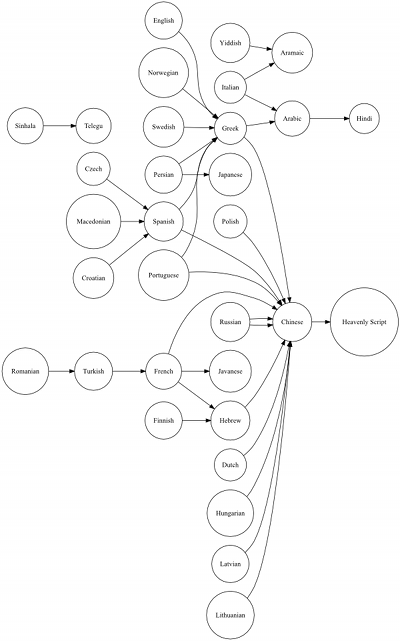In English, a person says, “It’s all Greek to me,” when they do not understand the words of someone else. In Greek, when a person does not understand, they say it sounds like Chinese. Many languages have an expression that names another language as epitome of unintelligibility. It turns out that in a directed graph, most languages converge on Chinese as the unintelligible language.
This is understandable. Chinese writing, especially Traditional Chinese, is very visually complex. Chinese characters are logograms, which makes learning how to read Chinese difficult.
However, there is a difference between finding Chinese writing confusing and alleging that Chinese people are confused.


